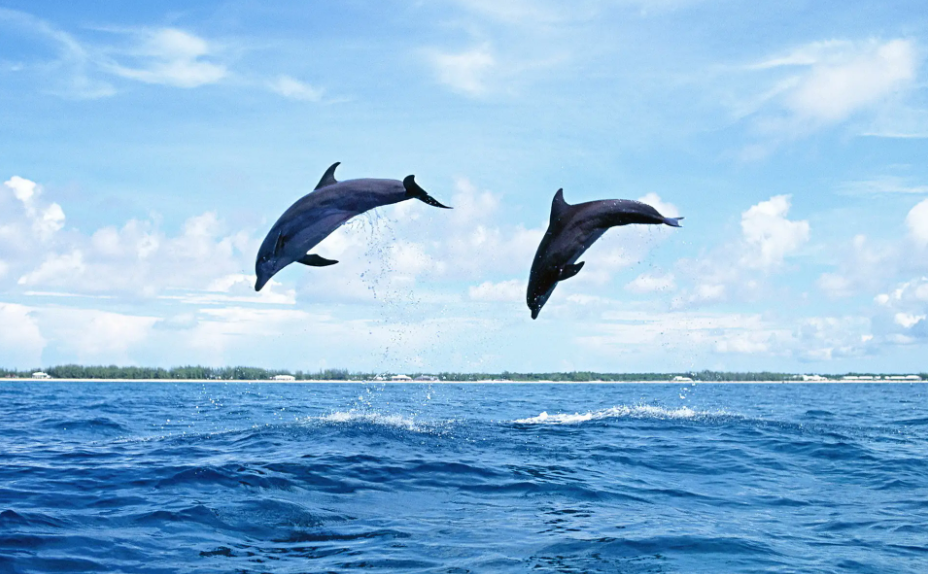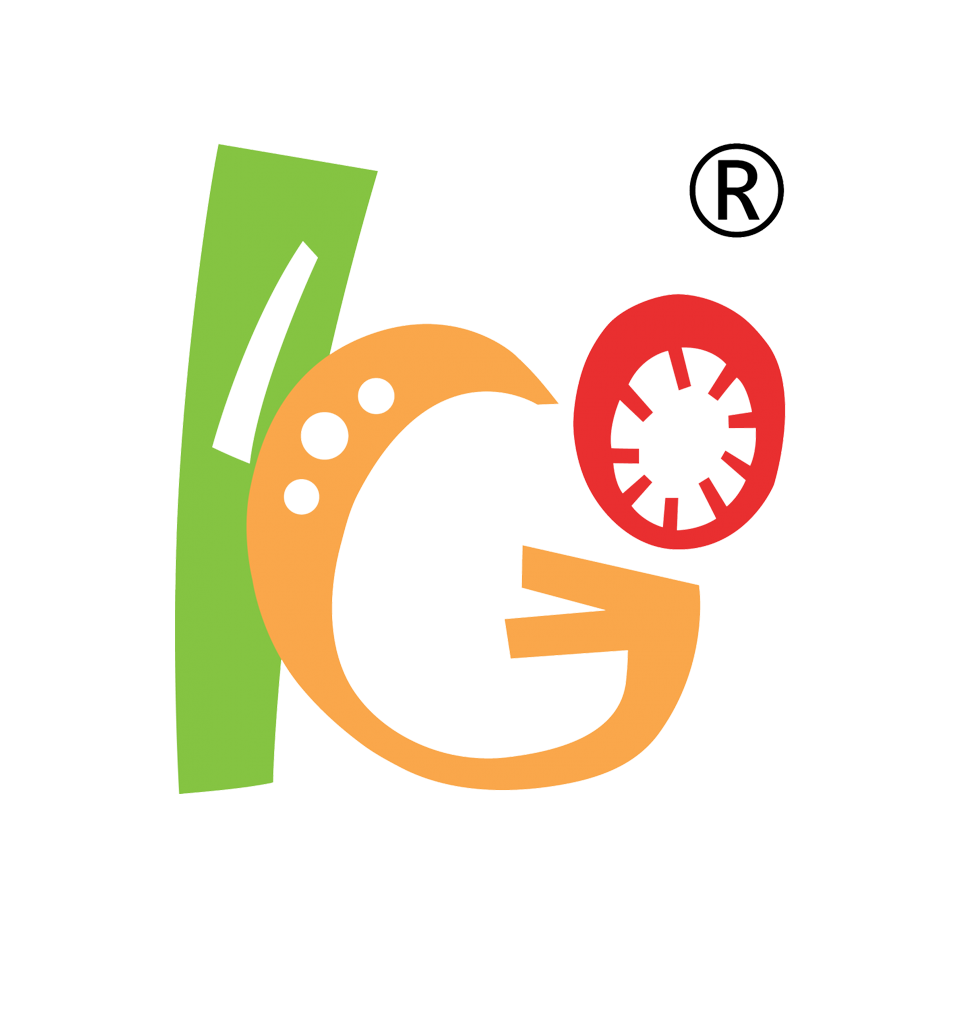The plastic waste not only harming the earth , but also harming our health step by step.
At present, plastic products have been widely used in all aspects of our food, clothing, living and transportation. However, the plastic waste we have thrown away is not only harming the earth where we live, but also harming our health step by step.It is reported that the plastic waste generated by human beings has reached 10 billion tons, and this waste has also become a major problem that troubles life.It is a common way to dispose of garbage that we throw away is incineration. However, incineration will produce a large amount of carbon monoxide, carbon dioxide, toluene and other gases that are harmful to the environment and human body, so it is not recommended.
In addition, some garbage is buried in the soil, but this method is applicable to degradable plastic products, but the natural degradation rate of most plastics is very slow, which takes hundreds of years. When these non degradable garbage enter the soil, it will seriously affect the ability of plants to obtain nutrients and water in the soil, and damage the growth of plants.
On the other hand, a lot of plastic rubbish will end up in the sea. The garbage discarded randomly by tourists, operators and coastal people will directly enter the sea, and the garbage in the soil will also be washed into the river by rain and finally into the sea. The amount of plastic waste entering the sea every year in the world can reach more than 10 million tons. It has seriously damaged our intertwined ecosystems.
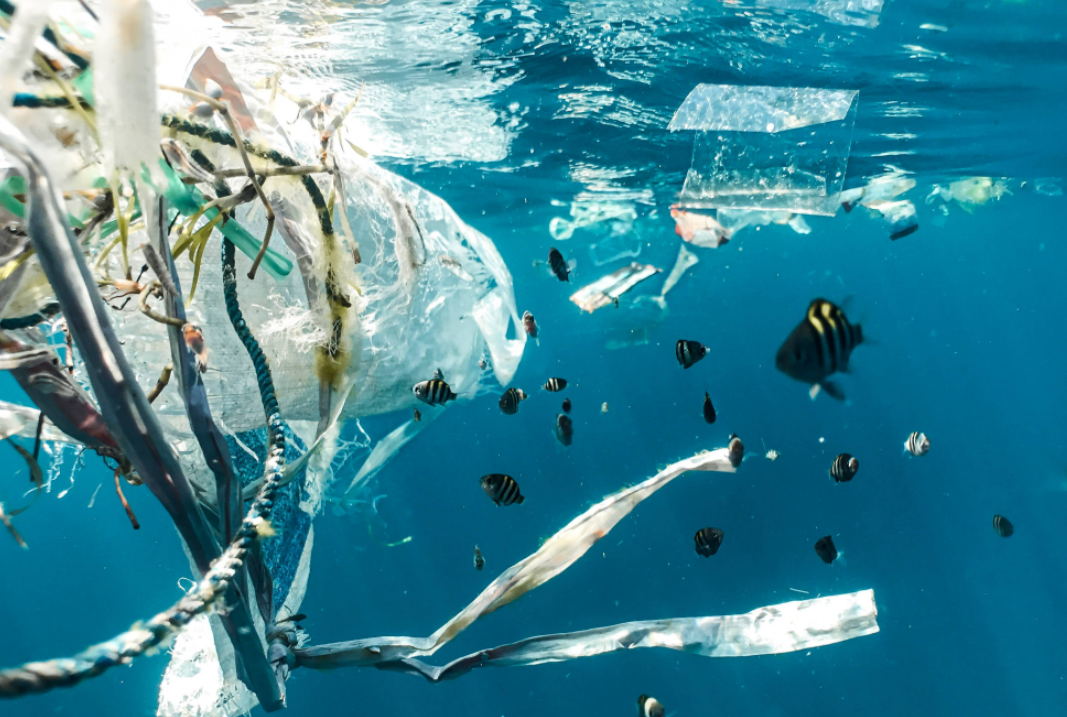
How harmful is plastic waste?
According to National Geographic, there are more than 5 trillion pieces of plastic fragments in our ocean, and 8 million tons of plastic bottles flow into the ocean every year. It takes hundreds of years for these white wastes to be naturally degraded, which has a particularly harmful impact on our marine ecosystem. Every year, thousands of seals in the ocean will suffocate due to plastic waste, and millions of seabirds will die from eating the garbage in the ocean.
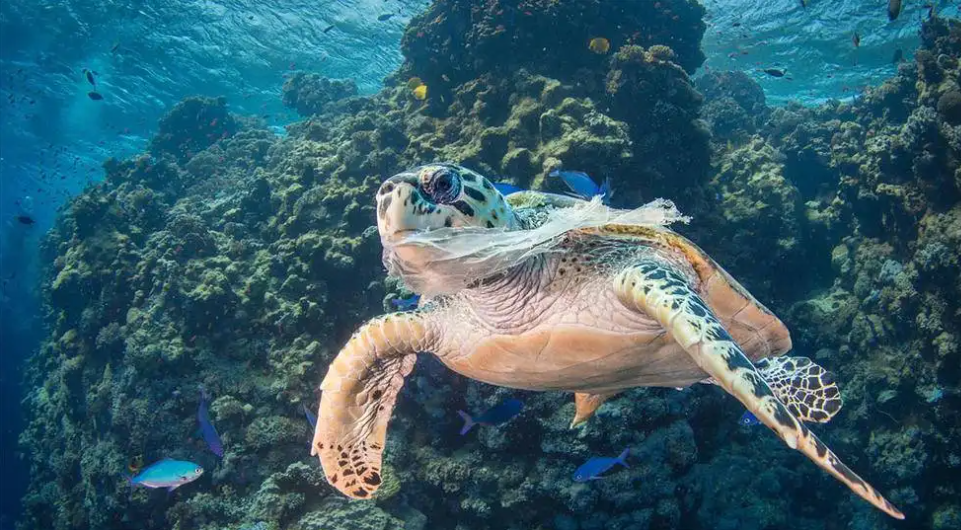
Sunlight, wind and water break up large plastic fragments into small pieces.These “micro plastics” look and smell like the food of more than 800 kinds of marine animals, including turtles, seagulls and dolphins. Whales can’t even tell the difference between jellyfish and plastic bags floating on the water because they break down. Ingestion of these plastics can lead to organ perforation, blockage of the digestive tract, and animals can no longer eat their natural food, leading to death. What’s worse, under the action of seawater immersion and physical friction, plastic waste will be turned into “slag”, of which the smaller diameter can be within 5mm. Marine animals will deposit a large amount of plastic particles in their bodies after swallowing them. After these animals are eaten by other animals, these plastic particles will accumulate in their bodies along the food chain.
Enter the sustainable transformation of circular design and circular economy, and optimize the sustainable use of resources through a waste free closed-loop system.
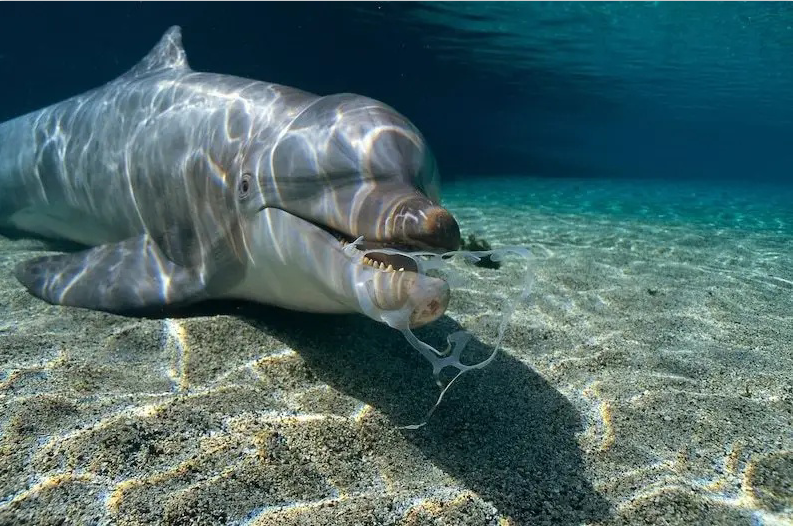
Committed to the development of circular economy is one of the greatest opportunities for designing a sustainable future, and also an important part of our IGO textile management strategy. Before we can realize a complete circular economy, we must not only recycle and reuse goods, but also find a way to “recycle” our waste, and transform waste plastics and other materials from environmental hazards into new and different useful products.
SEAQUAR YARN is made of Upcycled Marine Plastic from SEAQUAL INITIATIVE.
Through the SEAQUAL INITIATIVE, individuals, organizations and companies work together to fight against pollution to clean our oceans and raise awareness of the problems caused by marine plastics. With the help of fishermen and other volunteers, the SEAQUAL community is committed to collecting marine debris from the sea and beaches to prevent plastic from degrading into micro plastic fragments. Advanced textile technology enables us to turn marine plastics into brand-new yarns.
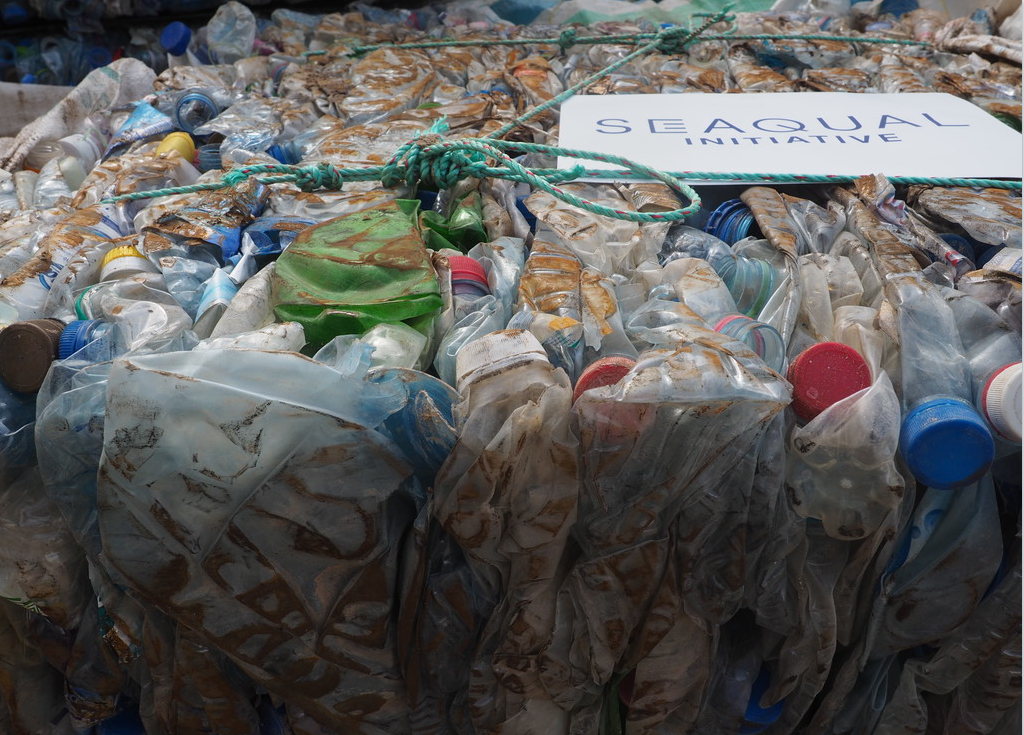
However, the collected waste consists of a variety of materials, which makes recycling difficult. This is why in the past, ocean cleaning often only transferred problems from the ocean to the earth, and most problems will eventually be buried. SEAQUAL INITIATIVE works with the waste management and recycling industries to transform marine litter into SEAQUAL® MARINE PLASTIC, so that leading brands and manufacturers can create inspiring sustainable products.The SEAQUAL INITIATIVE classifies mixed waste into different material types. Metals and glass are recycled through traditional methods, and organic and non plastic materials are recycled or disposed of responsibly. Clean the plastic part and convert it into a new raw material, called Upcycled Marine plastic. These small plastic particles can be used to make beautiful, new and sustainable products. So far, the SEAQUAL initiative has transformed 99 tons of garbage into recyclable marine plastics. Brands and manufacturers from 46 countries have joined the fight against marine garbage.
SEAQUAR YARN is made of Upcycled Marine Plastic from SEAQUAL Initiative. In addition to other post consumer plastic water bottle wastes on the land, the creation of textiles has made it possible for a variety of applications. The performance of SEAQUAL YARN is almost the same as that of pure polyester, which can be used for textile clothing and accessories, interior decoration and other fabrics.
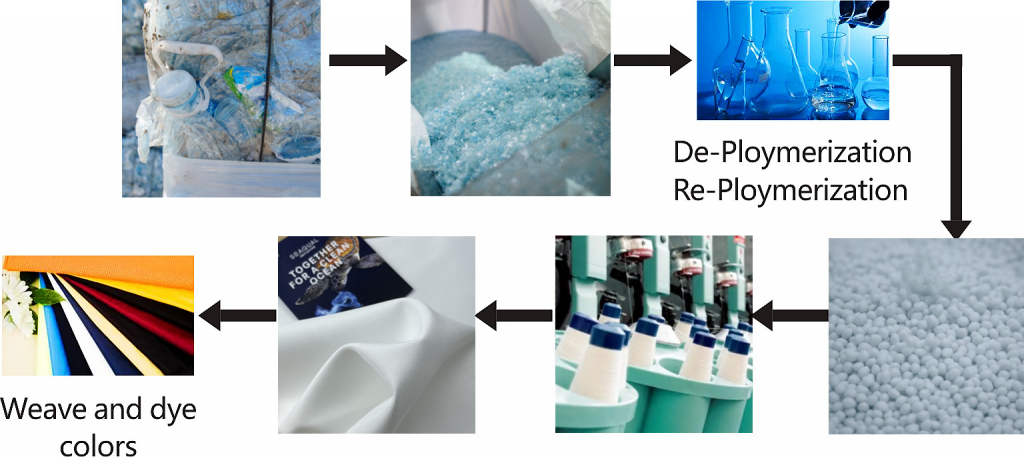
IGO textile, as a company committed to achieving circular economy, has taken into account the environmental, social and economic impacts of our products. SEAQUYAL FABRIC is a promising material because it is made of recycled plastic after consumption and comes from the floating debris in our ocean. It adds a great use to our products and represents a big step towards a fully sustainable product.
IGO textile is specialized in eco-friendly materials and dedicated to upgrade your purchase with sustainable fashion and green products. We aim to help set up an eco-friendly lifestyle throughout the world.
IGO textile has participated and become a textile licensee of SEAQUAL INITIATIVE since 2019.
SEAQUAL INITIATIVE works with the waste management and recycling industries to transform marine litter into SEAQUAL® MARINE PLASTIC, so that leading brands and manufacturers can create inspiring sustainable products.
SEAQUAL® YARN is a high quality 100% post-consumer recycled polyester yarn, containing Upcycled Marine Plastic recovered from our oceans and beaches. It is used in a multitude of applications including apparel and accessories, contract and automotive upholstery, home furnishings and technical textiles.
Through cooperation with SEAQUAL Initiative, IGO textile has manufactured thousands of SEAQUAL fabrics for shopping bag, backpack, activewear, and furniture (划线处链接到https://www.igotextile.com/product-category/seaqual-fabrics/) from the year of 2019. Every two kilograms (four meters) of marine fiber, one kilogram of waste will be removed from the ocean, and one meter of fiber is equivalent to 26 plastic bottles. We support recycling, reuse and recycling. In the process of recycling, we put waste into upgrading to create new fabrics.
Plastic retrieved from our oceans, beaches and estuaries is converted into a new, fully traceable raw material that has the power to raise awareness of the problem of marine plastics and working hard to solve it. In choosing products containing Upcycled Marine Plastic you are helping to end plastic pollution.
Our Mission is to help set up an eco-friendly lifestyle throughout the world. Shifting perceptions from waste to resource, There couldn’t be a better way to achieve this than joining forces with SEAQUAL INITIATIVE. It enables us to show that the abundantly available PET bottles washed up on our shores can be given a new life. “Keep improving” is our philosophy.
IGO textile still believes that the situation that the ocean is polluted by plastic waste can be changed. We all hope that there will be a better environment, and we will strive to make it come true – recycling marine garbage, and encourage our customers to join SEAQUAL™ In action. In the next few years, SAQUAL related products will become one of the mainstream trends in related industries, just like recycled paper, recycled plastics will lead the industry trend. Our aim is to create a seismic shift in attitude towards sustainability. We are developing a worldwide program to recover plastic waste from the environment and engaging with all industries to transform this resource into new high-quality everyday products. You will be able to choose SEAQUAL certified products from leading brands for every aspect of your life. Together we can create a new way for humanity to choose a sustainable future.
